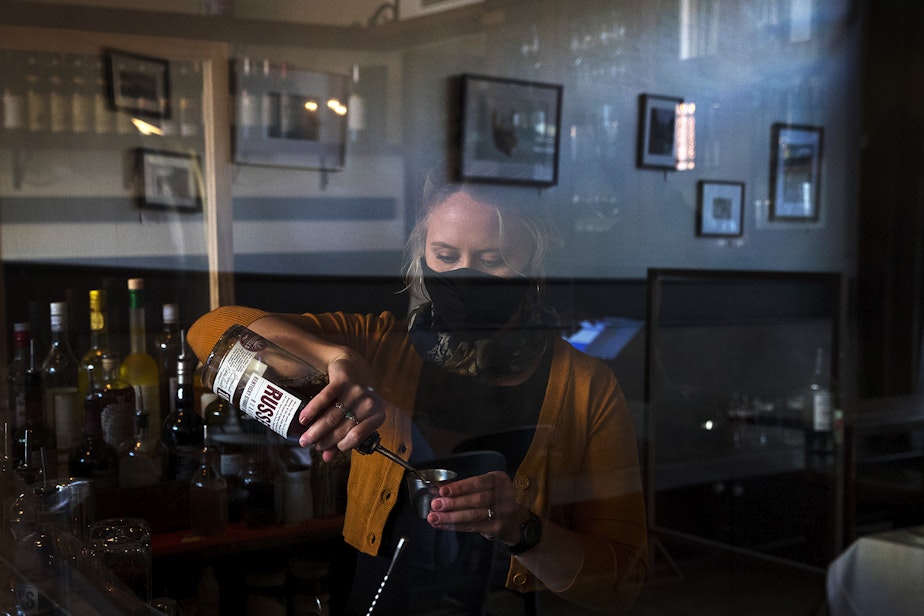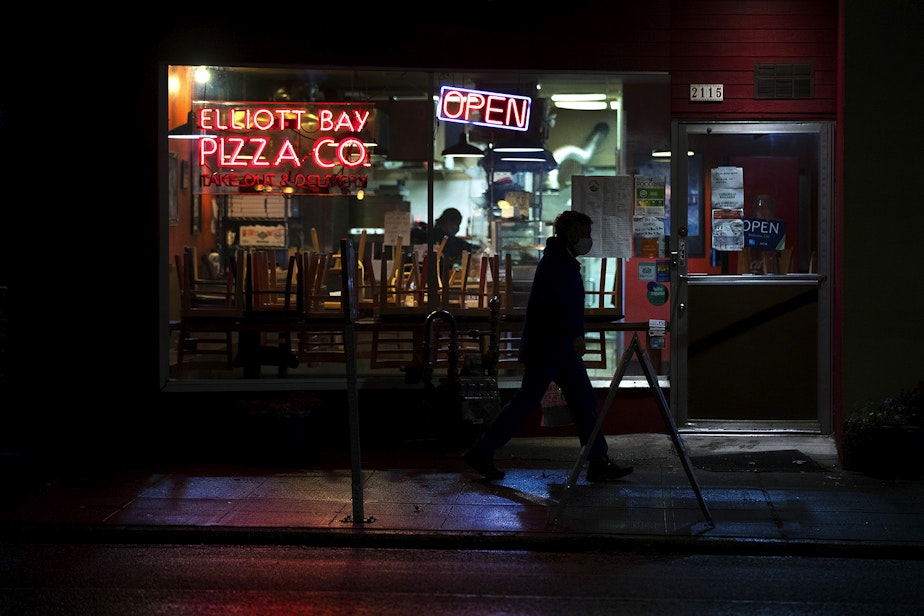In Seattle, pandemic stress overshadows new minimum wage boost

The new year means an increase in the minimum wage for Washington state and for Seattle.
But the pay boost for workers has felt like an afterthought as employees seek to obtain work or jobless benefits, and businesses struggle to stay open amid the ongoing pandemic.
Seattle was the first city in the nation to mandate a $15 minimum wage, in 2014. It's been phased in over time. This year marks the first time that all the city’s employers are covered by that mandate.
Seattle gave small businesses several years to reach the $15 minimum wage. As of January 1, the final group of employers must now comply. For some workers it means a pay boost of $1.50 an hour.

Mark Rosén is the acting CEO for The GSBA, the state's LGBTQ and allied chamber of commerce. He said while many employers in Seattle already pay more than minimum wage to retain their employees, the higher wage could be significant for some of his members.
But he also said reaction has been muted as it’s taken a back seat to other concerns.
Sponsored
“It’s unsure how much that will have an effect on them. I think more the factor of diminished business due to the shutdown is probably the biggest factor that they’re experiencing right now,” he said.

Rosén said his group supported I-1433, the 2016 ballot measure led by Working Washington that increased the minimum wage statewide and required that the wage then increase annually with inflation. As of Jan. 1 this year, the new statewide minimum wage is $13.69 per hour, and it’s $3 more per hour for many Seattle employers.
The labor group Working Washington led the campaign for Seattle’s $15 minimum wage and the statewide initiative. During the pandemic, the group has turned its attention to protections for workers in the hospitality industry and addressing barriers to unemployment benefits.
Jobless claims nationwide are currently four times higher than a year ago at this time before the coronavirus struck. Rosén said the new round of loans in the federal Paycheck Protection Program is holding out the most hope for the local businesses his group represents. The new coronavirus relief bill will provide $284 billion in loans for small businesses.




